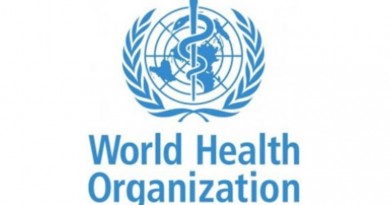AstraZeneca launches Africa Health Innovation Hub to increase access to healthcare in Africa
The innovative A. Catalyst Innovation Hub will embrace new technologies, including AI; projects include significant collaborations with Medsol AI in South Africa and Tricog Health in Kenya; The new hub will concentrate on data gathering, technology, early diagnosis, and education.
The Africa Health Innovation Hub was officially unveiled today by AstraZeneca, a major international pharmaceutical business. The company’s dedication to promoting partnerships with a variety of stakeholders, including governments, healthcare societies, academia, healthcare providers, and patient advocacy groups patient advocacy groups, to better improve patient outcomes is highlighted by this ground-breaking initiative. The hub intends to combine cutting-edge science and technology to increase patient access to healthcare on the continent, building on AstraZeneca’s efforts there.
The Africa Health Innovation Hub is the most recent addition to the A. Catalyst Network, a global network of over 20 hubs (https://apo-opa.info/3zUAl3b). This network aims to increase patient-centered innovation through strategic alliances within the healthcare ecosystem, promote affordable and equitable healthcare access, and address current healthcare concerns through collaborative innovation.
AstraZeneca joined the WEF Edison Alliance last year, a public-private cooperation that seeks to enhance the lives of 1 billion people through digital inclusion by 2025 (https://apo-opa.info/3o4sPA1). The relationship strengthens our resolve to use digital innovation to promote fairness and inclusion throughout the healthcare ecosystem, and as a result, it will also be an effective facilitator of the Africa Hub.
AstraZeneca aims to strengthen and future-proof health systems across the entire patient journey, ensuring everyone has equitable and affordable access to the life-changing healthcare solutions they need, regardless of where they live,” said Gagan Singh, Country President, African Cluster, AstraZeneca. With the opening of the Africa Health Innovation Hub, we have taken a big step toward our mission of enabling digital innovation and transformation in the health sector across the continent and opening the door for patient-centric digital health solutions that benefit all. Working with partners across the continent, we are developing local talent and expanding access to high-quality healthcare for all.
In its earliest stages, two significant new partnerships in Africa will serve as the Hub’s backbone:
AstraZeneca is collaborating with MEDSOL AI SOLUTIONS (https://MEDSOL.AI) in South Africa to promote the use of AI in the identification of disease using a cutting-edge Wi-Fi ultrasound sensor that can quickly identify breast cancer. The Melusi Breast AI rapid detection app will be implemented in rural clinics to aid in early disease identification and will be backed by a dedicated referral system so that women with confirmed breast cancer can receive therapeutic intervention more quickly.
Medsol AI is excited to be leading one of the inaugural projects of the Africa Innovation Hub, with support from AstraZeneca,” said Dr. Kathryn Malherbe (PhD), CEO and Founder of MedSol AI Solutions. Breast cancer is a terrible illness, and many of the women in our communities can only get late-stage diagnosis. Through the Melusi Breast AI initiative, we will be able to use technology and innovation to enhance patient outcomes and early diagnostic detection rates in nearby clinics, ultimately saving lives.
The business is extending its productive partnership with Tricog (www.Tricog.com) Health Limited in Kenya. The African hub aims to improve early diagnosis and treatment of Heart Failure using Tricog’s InstaECG AI tools for rapid diagnosis, lowering mortality rates, and enhancing quality of life. This is done after a few years of piloting an AI technology that connects ACS patients to health professionals and routes them to the appropriate facilities, enabling early cardio-renal complications to be addressed in India.
Non-communicable diseases, including heart disease, are on the rise in Kenya and throughout Africa, and we know that the earlier these conditions are diagnosed, the better chance there is for patients to continue living long, healthy lives,” Dr. Charit Bhograj, CEO & Founder Tricog Health Limited, continued. The Africa Health Innovation Hub is enabling the use of cutting-edge AI to screen and diagnose patients remotely by investing in digital health technology, making superior health tools available to individuals wherever they may live
The Fuel Africa program, started by Futurize (www.Futurize.studio), is another cooperation that was started last year and will formally be a part of the Africa Health Innovation Hub. The best brains from universities across Sub-Saharan Africa have come together for the largest healthcare entrepreneurship program on the region to address some of the continent’s most urgent healthcare concerns. AstraZeneca’s A. Catalyst Network collaborated with Futurize for the second consecutive year to further our firm commitment to promoting innovation across the continent by nurturing homegrown talent.
AstraZeneca’s health innovation cluster in Africa officially launched.
The Daspoort Poli Clinic in Pretoria, South Africa, hosted the official launch event that served as the hub’s introduction and the beginning of the Medsol AI partnership. There, medical professionals were able to demonstrate the use of the Melusi Breast AI device in a setting that serves as one of the first points of contact for clinical breast examinations and breast cancer screening for patients.
Aside from funding local talent development and cancer screening policy changes, the Africa Health Innovation Hub will also work to eliminate access gaps in healthcare and enhance patient quality of life throughout the continent of Africa, especially in rural and underserved areas. The four pillars of AstraZeneca’s A. Catalyst Network, which are education and awareness, early diagnosis and referral, connectivity and technology, and data generation, are aligned with these goals.




